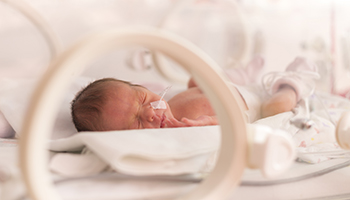Mark Kopec Now
Neonatologist
Neonatal-Perinatal Medicine: A Focus on the Most Vulnerable with Baltimore Neonatologist Lawyer Mark Kopec
Neonatal-perinatal medicine is part of pediatrics that focuses on the care of new babies, infants, and pregnant women experiencing high-risk pregnancies. Consequently, these specialists, often called neonatologists, play a role in the health and well-being of the most vulnerable members of our society. However, medical malpractice can occur. If your child has a birth injury, you may need Baltimore neonatologist lawyer Mark Kopec at the Kopec Law Firm.
Education and Training
The journey to becoming a neonatologist:
- Medical School: Firstly, completion of a four-year Doctor of Medicine (MD) or Doctor of Osteopathic Medicine (DO) degree.
- Residency: Afterward, a three-year residency in pediatrics.
- Fellowship: Then a three-year fellowship in neonatology, providing specialized training in the care of critically ill babies.
Licensing and Board Certification
- Medical License: All neonatologists must hold a valid medical license in the state where they practice.
- Board Certification: Board certification is by the American Board of Pediatrics in Neonatal-Perinatal Medicine.

Types of Patients and Conditions
Neonatologists care for a wide range of patients, including:
- Premature infants: Born before 37 weeks of gestation, often requiring intensive care due to underdeveloped organs.
- Full-term infants with complications: Such as birth injuries, respiratory distress, infections, and congenital anomalies.
- Pregnant women experiencing high-risk pregnancies: Conditions like preeclampsia, gestational diabetes, and multiple pregnancies.
Baltimore neonatologist lawyer Mark Kopec will evaluate your pregnancy history to assess a potential birth injury claim.
Common Medical Conditions Treated
- Respiratory distress syndrome: Difficulty breathing due to underdeveloped lungs.
- Necrotizing enterocolitis: A serious intestinal condition affecting premature infants.
- Intraventricular hemorrhage: Bleeding in the brain, a common complication in premature infants.
- Sepsis: A life-threatening blood infection.
- Congenital anomalies: Birth defects such as heart defects, spina bifida, and cleft lip/palate.
Diagnostic Tests and Procedures
- Blood tests: To assess blood sugar, blood gases, and infection.
- Imaging studies: X-rays, ultrasounds, and MRIs to evaluate organ function and also identify abnormalities.
- Electrocardiograms (ECGs): To assess heart function.
- Lumbar punctures: To diagnose infections of the spinal fluid.
- Surgeries: To correct congenital anomalies or address other medical conditions.
Treatments
- Respiratory support: Including mechanical ventilation, continuous positive airway pressure (CPAP), and high-frequency oscillatory ventilation.
- Intravenous fluids and medications: To treat infections, maintain blood pressure, and correct electrolyte imbalances.
- Surgeries: To correct congenital anomalies, repair birth injuries, and address other medical conditions.
- Developmental care: To support the neurodevelopmental outcomes of premature and critically ill infants.
Baltimore neonatologist lawyer Mark Kopec will review the treatment your baby received and advise you on your legal rights.
Work Environments and Collaborations
Neonatologists typically work in:
- Neonatal intensive care units (NICUs): In hospitals of varying sizes.
- Level III NICUs: Offer care for ill babies.
- Private practices: Focusing on outpatient care for high-risk pregnancies and also follow-up care for infants.
They work closely with:
- Pediatricians
- Obstetricians and gynecologists
- Pediatric surgeons
- Neurologists
- Cardiologists
- Respiratory therapists
- Physical therapists
- Occupational therapists
- Speech-language pathologists
- Social workers
- Lactation consultants
Medical Malpractice Claims with Baltimore Neonatologist Lawyer Mark Kopec
Medical malpractice claims against neonatologists can arise from a variety of circumstances, including:
- Errors in diagnosis: Failure to identify or misdiagnosis of critical conditions.
- Negligent treatment: Providing inappropriate or poor care, such as wrong medication dosages, delayed interventions, or surgical error bad outcomes from procedures.
- Birth injuries: Such as brachial plexus injuries, cerebral palsy, and hypoxic-ischemic encephalopathy (HIE) (brain damage due to lack of oxygen).
- Failure to obtain informed consent: Not telling the risks and benefits of treatment options to parents.
- Lack of proper monitoring: Failure to monitor the baby’s vital signs and condition, then leading to missed opportunities for intervention.
- Improper discharge planning: Releasing the infant from the hospital before they are stable or without adequate support.
Next Step: Call Baltimore Neonatologist Lawyer Mark Kopec
This webpage provides a general summary of the field of neonatal-perinatal medicine. Accordingly, it’s essential to remember that every case is unique, and the specific facts and circumstances will determine the potential for a successful medical malpractice claim. If you believe you may have a birth injury claim, it is crucial to consult with an experienced medical malpractice attorney.
Visit our free consultation page or video. Then contact the Kopec Law Firm at 800-604-0704 to speak directly with Attorney Mark Kopec. He is a top-rated Baltimore birth injury lawyer. The Kopec Law Firm is in Baltimore and pursues cases throughout Maryland and Washington, D.C.





